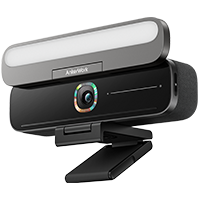When planning your next camping adventure, power can be one of the most essential yet challenging resources to manage. Whether you're keeping your devices charged, powering up a portable fridge, or running lights after sundown, a reliable energy source is a must.
That's where solar generators come into play. Harnessing the sun's power, these eco-friendly devices are an excellent solution for staying powered up in the great outdoors without the need for fuel or noisy generators. If you're in the market for the best solar generator for camping, read on to explore 2024's top choices and learn the key factors to consider when choosing to find the perfect fit!
Benefits of Solar Generators for Camping
Solar generators have become an increasingly popular choice for campers looking to power their trips efficiently and sustainably. Let's look at some of its key benefits:
- Eco-friendly Power Source: Solar generators provide a sustainable way to generate electricity while camping. Unlike traditional generators that rely on fossil fuels, solar generators harness the power of the sun, producing zero emissions. This clean energy solution allows you to enjoy nature without contributing to environmental pollution.
- Quiet Operation: One of the biggest advantages of solar generators over their gas-powered counterparts is their silent operation. Solar generators produce almost no noise, ensuring that you can enjoy the sounds of nature without the constant hum of a gas engine in the background.
- Low Maintenance Costs: Solar generators have fewer moving parts than gas generators, which means they require less maintenance. There's no need to worry about changing oil or replacing spark plugs, making them a convenient choice for those who want hassle-free power.
- Versatility: Many of the best solar generators for campingcome with multiple output options, such as USB ports, DC carports, and AC outlets. This versatility allows you to charge a variety of devices, from smartphones and laptops to larger equipment like mini-fridges and electric grills, making them suitable for a wide range of camping activities.
Best Solar Generators for Camping 2024
Here, we highlight some of the best solar power generators for camping in 2024, each standing out for their power capacity, durability, and user-friendly features:
Anker SOLIX C1000 Solar Generator + 200W Solar Panel
The Anker SOLIX C1000 Solar Generator + 200W Solar Panel is a versatile and powerful option for campers who need reliable energy for multiple devices. With an 1800W AC output, 11 Ports, and the ability to handle surges up to 2400W, this generator can power up to 99% of your camping appliances simultaneously, from lights and mini fridges to high-demand coffee makers and portable air conditioners.
The C1000 comes with a 1056Wh battery, providing ample capacity to keep your essentials running for extended periods. Thanks to its 600W fast solar recharging capability, the generator can fully recharge in just 1.8 hours when paired with the included 200W solar panel.

This solar generator offers smart monitoring through its dedicated app, which connects via Bluetooth and Wi-Fi, allowing you to track and control your energy use from your phone. It's also built to last, with LiFePO4 batteries that provide up to 3,000 cycles and a 5-year hassle-free warranty, ensuring you can rely on it for years to come.
Plus, the included 200W solar panel is equipped with an adjustable kickstand for optimal sun exposure and comes with IP67 waterproof protection, so you won't have to worry about harsh weather conditions.
Anker SOLIX F2000 Solar Generator + 200W Solar Panel
For campers who need more power, the Anker SOLIX F2000 Solar Generator + 200W Solar Panel is perfect for you. With a 2048Wh capacity and a 2400W output, this solar generator can handle even the most demanding appliances.
From keeping a mini fridge running around the clock to powering energy-hungry devices like a microwave, kettle or hair dryer, it is built for those who are either camping for extended periods or traveling off-grid in more rugged environments. You can power up to 12 devices simultaneously, ensuring that your camp stays well-lit, connected, and comfortable.

This best portable solar generator for camping is designed for tough adventures. With its impact-resistant, flame-retardant build, and a set of rugged wheels, this solar generator can travel up to 125 miles without trouble, easily navigating any campsite terrain. An extendable pull handle makes transport a breeze, eliminating the need for heavy lifting.
Like the C1000, it can be controlled remotely via a smart app, so you can manage power without leaving the comfort of your camp chair. Durability is another key feature of the SOLIX F2000, thanks to its EV-grade LiFePO4 batteries that last up to 3,000 charge cycles, equivalent to about 10 years of use.
Key Factors in Choosing a Solar Generator for Camping
With a variety of options available, it's essential to know the key factors you should consider to ensure you get the right model for your needs. Here's what to keep in mind:
Power Output (W)
Power output refers to the amount of electricity a solar generator can provide at any given time. It's measured in watts (W) and determines the types of devices you can power and how many of them you can run simultaneously.
If you're powering lights, charging phones, or running small fans, a solar generator with a 500W to 1000W output should be sufficient. However, if you're running more energy-hungry appliances like mini fridges, coffee makers, portable stoves, or electric grills, a generator with 1500W or more continuous
Capacity (Wh)
Capacity, on the other hand, refers to the total amount of energy a solar generator can store and is measured in watt-hours (Wh). This tells you how long the generator can power your devices before it needs to be recharged.
If you're going on a short camping trip where you're mostly powering small devices like phones, LED lights, and an electric cooler, a generator with 500Wh to 1000Wh capacity is sufficient. However, if you're planning for extended stays or running larger appliances like mini fridges and portable stoves, a generator with 1000Wh to 2000Wh capacity or more is ideal.
Number and Type of Output Ports
Consider the variety and number of devices you'll need to power while camping. The best solar generator for camping will offer multiple types of output ports, including AC outlets, USB ports, and DC carports.
This ensures you can charge a range of devices, from smartphones to kitchen appliances. The more ports a generator has, the more convenient it will be, especially if you're camping with family or a group that needs to charge several devices at once.
Portability
Portability is crucial when camping, especially if you'll be hiking or moving between sites. A lightweight and compact solar generator is easier to carry and store, especially if you're limited on space. Look for models that offer handles or wheels, as these features can make transport much more manageable. Foldable solar panels also enhance portability, allowing you to pack them efficiently.
Durability and Weather Resistance
Since your generator and solar panels will be exposed to the elements, they need to be built to last. Look for solar panels and generators that are water-resistant, dustproof, and designed to withstand various outdoor conditions.
Many top models come with IP ratings that certify their level of protection against water and dust. For example, an IP67 rating means the product can withstand temporary submersion in water and is fully protected from dust.
Battery Type and Lifespan
The type of battery used in a solar generator affects its performance and longevity. Lithium-ion (Li-ion) batteries are commonly used due to their high energy density and lightweight design, making them great for camping.
However, newer models with Lithium Iron Phosphate (LiFePO4) batteries are becoming more popular, as they tend to last longer—often up to 3,000 charge cycles or more—while being safer and more resistant to overheating.
Tips to Maximize Efficiency of Solar Generators for Camping
Maximizing the efficiency of your solar generator while camping ensures you get the most out of your device and keep your essential gear powered throughout your trip. Here are some practical tips to help:
- Optimize Solar Panel Placement:To get the best charging performance, position your solar panels in direct sunlight, ideally between 10 AM and 4 PM when the sun is at its peak. Use adjustable kickstands to angle the panels for maximum exposure, and be sure to keep them free from dust, dirt, or debris that could block sunlight.
- Use Power Wisely:Prioritize charging essential devices and use power-efficient alternatives where possible. For example, opt for LED lights instead of incandescent bulbs and energy-saving settings on your devices. Also, avoid running high-power appliances unnecessarily to conserve battery life.
- Monitor and Manage Power Usage:Many solar generators come with apps or built-in displays that allow you to monitor power consumption. Regularly check how much energy your devices are using and adjust as needed to avoid overloading the generator or draining the battery too quickly.
- Store Batteries Properly:When not in use, store your solar generator and its battery in a cool, dry place. Extreme heat or cold can reduce battery life and efficiency. Additionally, ensure the generator is partially charged (around 50%) if you’re storing it for an extended period.
Conclusion
Choosing the best solar generator for camping can greatly enhance your outdoor experience, allowing you to stay connected and comfortable while minimizing your environmental impact. From exploring the top options that stand out this year to knowing what factors to prioritize when selecting a model, being well-informed will help you invest in a generator that fits your specific needs. With the right tips to maximize your generator's performance, you'll stay charged up and ready for anything nature throws your way. So, gear up, go green, and enjoy your next camping trip with confidence!
FAQs
How do I know what size solar generator I need?
To determine the right size solar generator, consider what devices you need to power and for how long. Add up the wattage of each device and estimate the total power you'll need. For example, if you plan to power a mini fridge (100 watts) and a few lights (10 watts each) for 5 hours, you would need a generator that can handle at least 550 watt-hours. Choose a generator with enough capacity to handle your power needs comfortably.
How much does a solar generator for camping cost?
The cost of a solar generator for camping typically ranges from $200 to $2,000+, depending on the size, power capacity, and features. Smaller models with 200-300 watts typically range from $200 to $400, while mid-range options with 500-1,000 watts cost between $500 and $1,000. For larger generators with 1,000 watts or more, prices can exceed $1,000, reaching up to $2,000 or more, providing enough power for extended camping trips or larger appliances like fridges or portable stoves.
How do I maintain my solar generator for camping?
Proper maintenance of your solar generator involves regular charging, even during off-seasons, to keep the battery in good condition. Store the unit in a cool, dry place, and avoid exposing it to extreme temperatures. Clean the solar panels and connectors regularly to ensure efficient charging, and periodically check for any damage or wear. Many manufacturers provide specific guidelines in their manuals, so it's beneficial to follow these instructions for optimal performance.




















